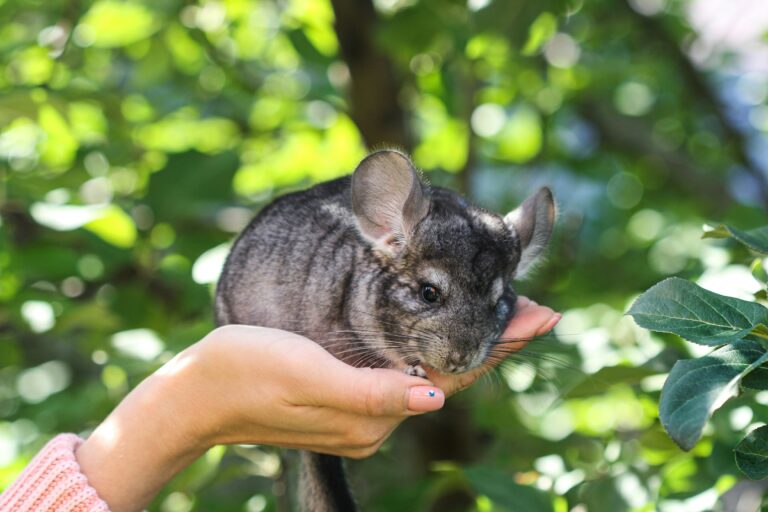One Chinchilla or Two?

Chinchillas are fascinating, playful, and relatively easy-to-care-for pets! They can make great companions for the right people.
Like many other pets, though, chinchillas have a social interaction requirement that when not fulfilled can cause distress. Because of this, one common question potential chinchilla owners ask is “should I get one chinchilla or two?”
This article will explore the pros and cons of getting one chinchilla versus a pair, covering topics such as their social needs, space requirements, care demands, and the financial aspects involved. By the end of this guide, you’ll be better equipped to decide what’s best for your home and lifestyle!
Understanding Chinchilla Behavior: Social or Solitary?
Chinchillas are native to the Andes Mountains of South America, where they typically live in social colonies. This raises the question: are chinchillas naturally social creatures, or can they be content living alone?
In the wild, chinchillas live in groups of up to 100 animals, which might suggest that they require companionship. However, domesticated chinchillas can be a bit different. While many chinchillas enjoy the company of others, some can live happily alone if they receive enough attention and stimulation from their human caregivers.
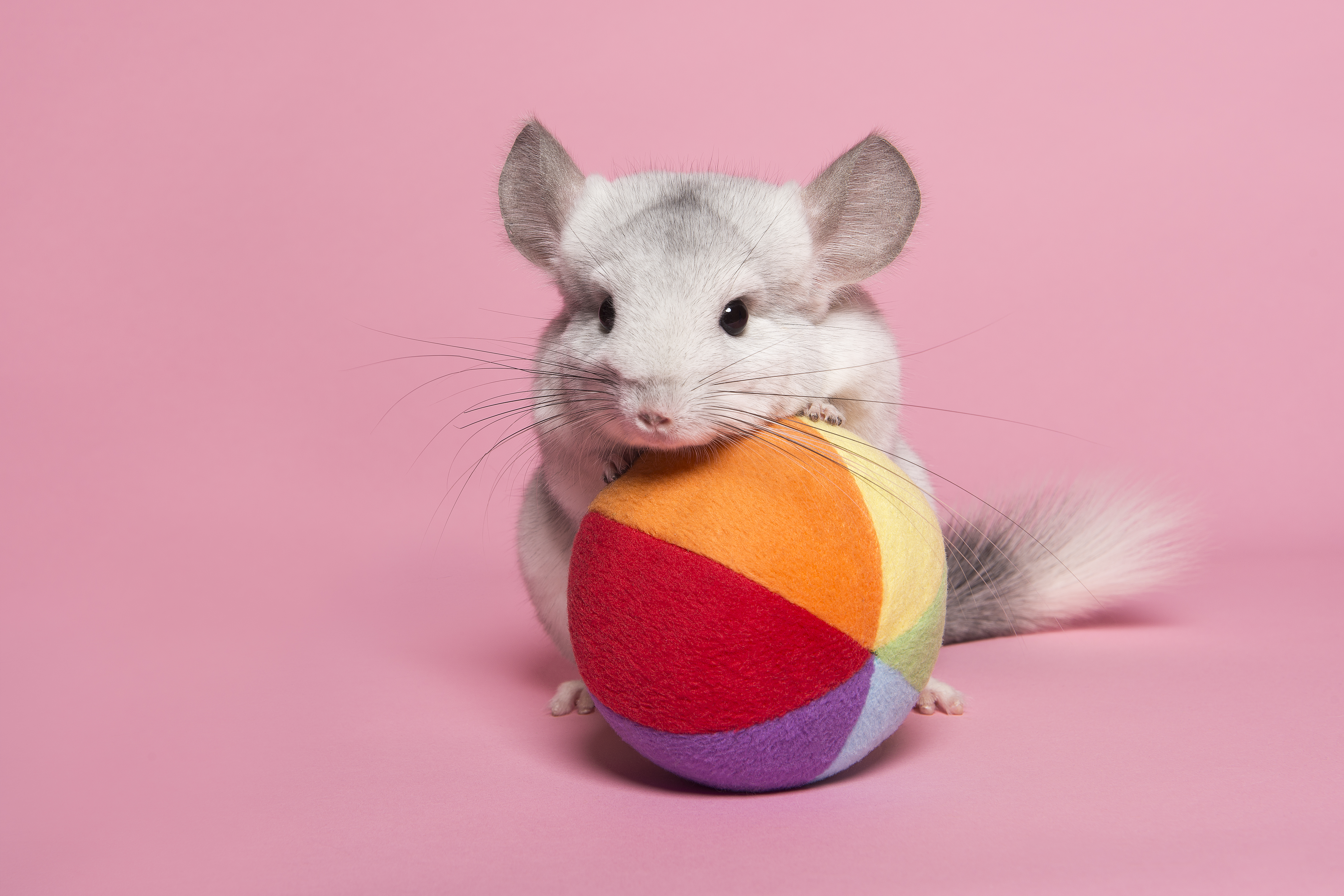
The Benefits of Keeping Two Chinchillas
There are several advantages to keeping two chinchillas together if they are compatible.
Companionship
One of the main reasons to consider getting two chinchillas is companionship. Chinchillas are generally social creatures and often thrive with a same-species friend. Keeping two chinchillas together can help prevent loneliness and boredom, which can sometimes lead to behavioral problems like chewing on bars, pacing, or excessive grooming.
When chinchillas are kept in pairs, they can play, groom each other, and sleep together, which promotes a sense of security and reduces stress. This can lead to happier, healthier pets in the long run.
Reduced Boredom
Chinchillas are highly energetic and intelligent animals, which means they require mental and physical stimulation to stay happy. While you can provide toys and time out of the cage, a fellow chinchilla provides continuous interaction. This constant engagement can help prevent boredom, which is often a precursor to destructive behaviors.
Natural Social Behavior
When chinchillas are housed together, they can display natural behaviors like grooming, playing, and snuggling. Owners often find joy in observing these interactions, as chinchillas have distinct personalities that shine when they are interacting with others.
Long-Term Emotional Health
Chinchillas that live with a companion often experience better emotional well-being. Having a bonded partner can reduce stress and anxiety, which can lead to a longer, healthier life. For many animals, stress can negatively impact their immune systems, and chinchillas are no different. A bonded pair can help buffer against these stress-related health issues.
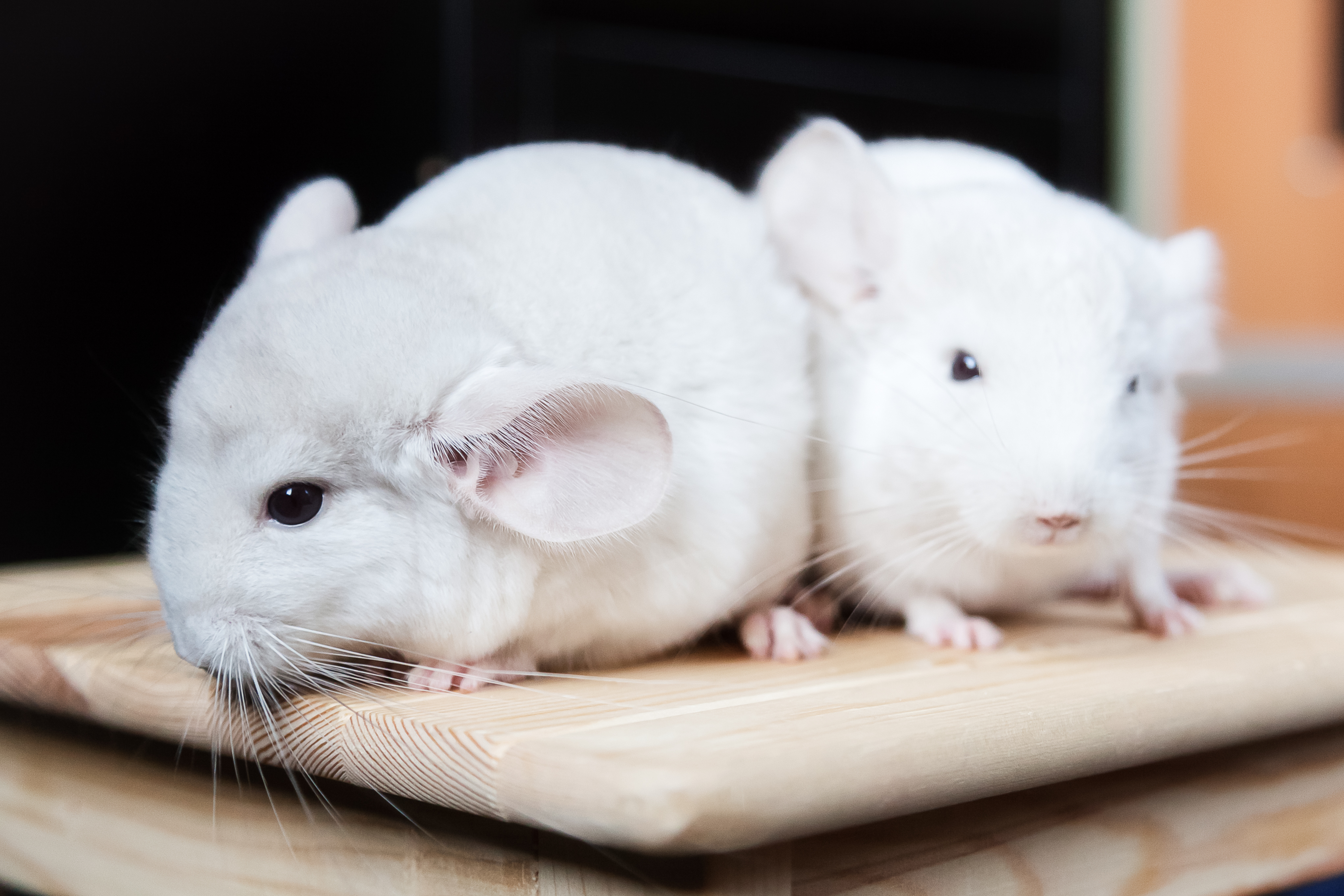
The Challenges of Keeping Two Chinchillas
While keeping two chinchillas has many benefits, it also comes with challenges.
Compatibility Issues
Not all chinchillas get along, and introducing two chinchillas to each other can be a delicate process. In some cases, chinchillas can be territorial, and introducing a new chinchilla to an established one can lead to fights or tension. Proper introductions are essential, and sometimes it takes weeks or even months for two chinchillas to become bonded.
Increased Space Requirements
Two chinchillas need more space than one. You’ll need a larger cage to ensure that each chinchilla has enough room to move around comfortably. Chinchillas love to jump and climb, so vertical space is just as important as horizontal space. If you don’t have enough space in your home for a larger cage, keeping two chinchillas may not be ideal.
Financial Considerations
Having two chinchillas means doubling the cost of food, bedding, and other supplies. You’ll also need to factor in potential veterinary costs for both animals. While chinchillas are generally healthy pets, having two increases the chances of unexpected medical expenses.
Time Commitment
Though having two chinchillas can reduce boredom and loneliness for the animals, you will still need to invest time in their care. This includes regular cage cleaning, feeding, socializing, and ensuring they get enough exercise. Keeping two chinchillas requires a larger time commitment than caring for just one.

The Benefits of Keeping One Chinchilla
If you’re still unsure whether to get one chinchilla or two, there are benefits to keeping a single chinchilla as well.
Easier to Bond with Your Pet
When you have just one chinchilla, it’s easier to form a close bond. Chinchillas can be wary of humans at first, but over time, they tend to form strong relationships with their owners. With only one chinchilla, you’ll have more opportunities for one-on-one interaction, which can help build trust.
Simpler Care Routine
Caring for one chinchilla is generally more straightforward than caring for two. You’ll have a smaller cage to clean, less food to buy, and fewer supplies to manage. This can make it easier for first-time chinchilla owners to handle the daily care needs of their pet.
Less Space Needed
A single chinchilla requires less space than two. This makes it easier for people living in apartments or smaller homes to accommodate a chinchilla. A large, multi-level cage will still be necessary, but it won’t need to be as big as one that houses two chinchillas.
Lower Costs
When you only have one chinchilla, the cost of ownership is lower. You’ll only need to buy food, bedding, and toys for one animal, and you’ll have fewer veterinary costs to worry about. For those on a budget, this can be an important factor in deciding how many chinchillas to get.
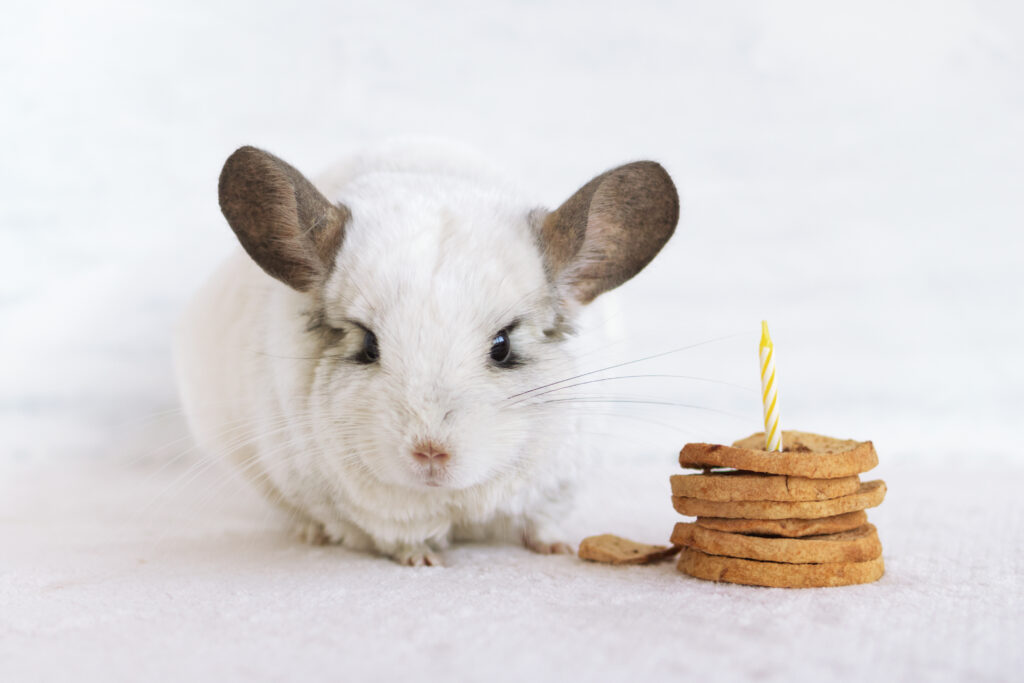
Is It Easier to Keep Two Chinchillas of the Same Sex?
If you’ve decided to get two chinchillas, one key decision is whether to get chinchillas of the same sex or different sexes. Generally, it’s easier to keep chinchillas of the same sex, as this avoids the risk of accidental breeding.
Two Males
Male chinchillas can live together peacefully, especially if they are siblings or introduced to each other at a young age. However, introducing two adult males can sometimes lead to territorial disputes. Proper introductions and gradual socialization can help minimize conflicts.
Two Females
Female chinchillas also typically live together well, though, like males, they can be territorial. However, females tend to be slightly more dominant than males, so it’s important to monitor their interactions closely, especially during the introduction phase.
Male and Female Pairs
Male/female pairs can get along well, but if you choose to keep this pairing and do not intend to breed, it is important to have one or both of them fixed. Chinchillas can breed quickly, and without proper intervention, you could end up with more chinchillas than you originally planned for!
How to Introduce Two Chinchillas
Introducing two chinchillas can be a slow process, but with patience, it can be done successfully.
Quarantine Period
Before introducing two chinchillas, it’s a good idea to keep them in separate cages for a few weeks to ensure neither animal is carrying any illnesses or parasites. This quarantine period helps protect both chinchillas’ health.
Gradual Introductions
Once the quarantine period is over, begin the introduction process gradually. Place the cages side by side so the chinchillas can see and smell each other without direct contact. Over time, you can allow them to interact in a neutral space, like a playpen or a new, unfamiliar room.
Monitor Behavior
Watch for signs of aggression, such as fur biting, chasing, or loud vocalizations. Some chinchilla squabbles are normal during introductions, but if the behavior becomes intense or dangerous, you may need to separate them and try again later. When introducing two chinchillas (especially adults) be aware that there is a chance they will never get along well. In this case you would need to provide two different enclosures.
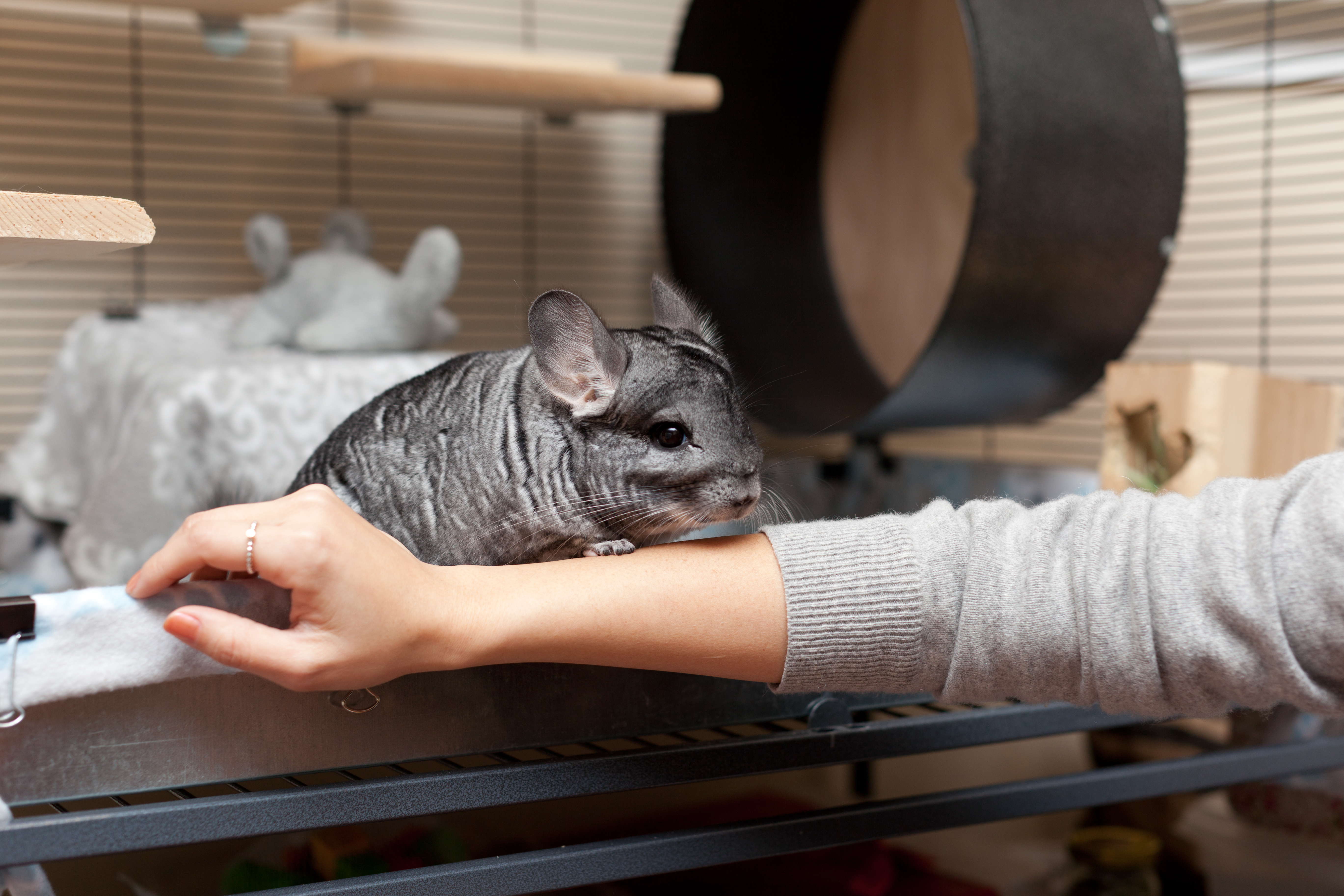
Frequently Asked Questions
Can a single chinchilla be happy living alone?
Yes, a single chinchilla can live happily if they receive plenty of attention, mental stimulation, and regular out-of-cage time from their human caregivers. However, chinchillas are social by nature, so it is crucial to ensure they are not left isolated or bored for extended periods.
Do chinchillas need companions to avoid loneliness?
While chinchillas thrive in social environments, they do not necessarily need a companion if you, as their owner, can provide sufficient interaction. Two chinchillas can keep each other company and prevent loneliness, but a well-bonded single chinchilla with plenty of interaction can also live a contented life.
How do I introduce two chinchillas to each other?
Introducing two chinchillas should be done gradually. Start by keeping them in separate cages next to each other so they can get used to one another’s scent. After a week or more, allow them to interact in a neutral space. Watch for signs of aggression and gradually increase the time they spend together until they are fully comfortable.
What size cage do I need for two chinchillas?
For two chinchillas, you’ll need a larger cage with plenty of vertical and horizontal space. A multi-level cage is ideal, as chinchillas love to climb and jump. The minimum recommended cage size for two chinchillas is around 3 feet wide, 2 feet deep, and 4 feet tall, though bigger is always better.
Can I keep two chinchillas of different sexes together?
Yes, but if you keep a male and female chinchilla together, it’s important to have at least one of them spayed or neutered to prevent breeding. Uncontrolled breeding can result in many baby chinchillas, and caring for a large number of animals can become overwhelming.
What happens if two chinchillas don’t get along?
If two chinchillas don’t get along, they may display aggressive behavior, such as biting, chasing, or vocalizing loudly. If aggression persists, you may need to keep them in separate cages permanently. In some cases, chinchillas never bond, but most can live peacefully with proper introductions.
Do two chinchillas need double the amount of toys and enrichment?
Not necessarily double, but you should provide enough toys, chew sticks, and hiding spots so that both chinchillas have something to engage with. It’s important to have multiple food bowls and water bottles to prevent competition and stress between the two chinchillas.
Is it more expensive to keep two chinchillas?
Yes, keeping two chinchillas can be more expensive because you’ll need to buy more food, bedding, and supplies. You’ll also need a larger cage, and veterinary care costs will increase if both chinchillas need treatment. However, some costs, like toys and enrichment items, can be shared.
Will two chinchillas bond with their owner as well as they bond with each other?
Chinchillas can still bond with their owner even if they are paired with another chinchilla. However, the bond might not be as strong or as immediate as with a single chinchilla, as they will have each other for social support. Regular interaction with both chinchillas is key to fostering a strong human-animal relationship.
What are the signs that two chinchillas are bonded?
Bonded chinchillas will groom each other, sleep close together, share food without conflict, and engage in play. If they seem comfortable and relaxed in each other’s company, these are good indicators of a strong bond. Once bonded, chinchillas typically become inseparable.
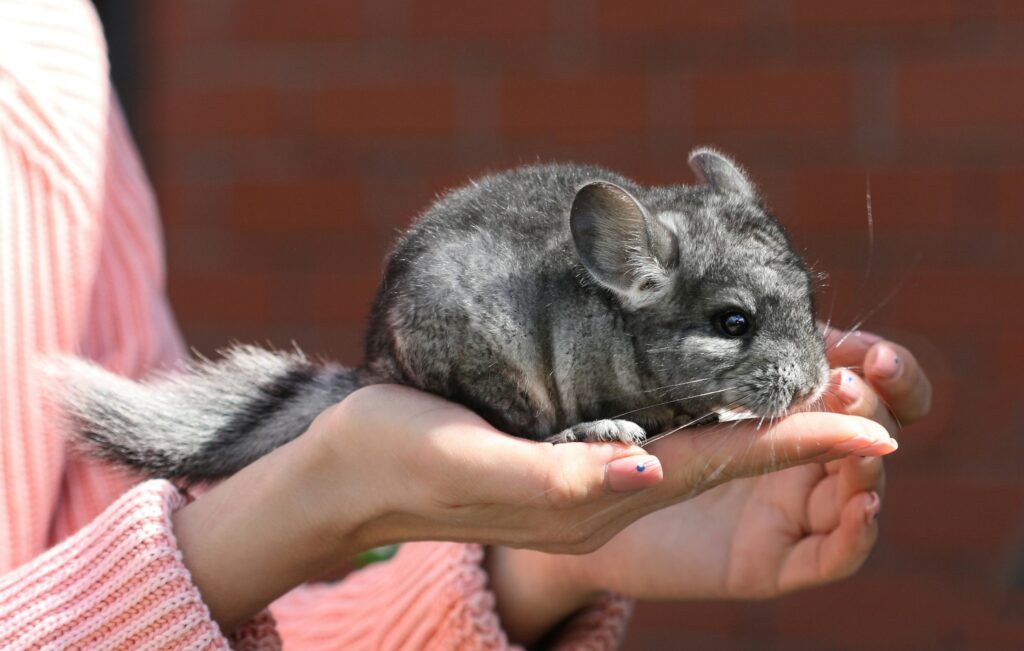
Conclusion
Deciding whether to get one chinchilla or two depends on your lifestyle, space, and financial situation. If you have the time, space, and resources to care for two chinchillas, a bonded pair can provide companionship and reduce boredom, leading to happier, healthier pets. However, if you are a first-time chinchilla owner or have limited space or budget, keeping one chinchilla may be the better option.
Regardless of how many chinchillas you decide to get, it’s important to remember that they are active, social animals that need plenty of mental and physical stimulation.






